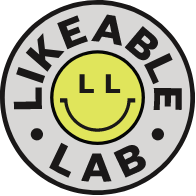We got a message from Facebook the other day. This happens regularly, they have lots of automated alerts and when you run ads every day for multiple businesses, you learn quickly which warnings matter and which ones don’t.
The message said along the lines of: “this ad may be shown to fewer people because it uses language that entices people to engage with the ad for the purposes of completing an action such as liking the post or sharing it.”
We knew this was coming, but we had not seen that exact message before.
Have you ever made a post that says something like “tag a mate” or “comment below”? If you try to run an ad on a post like this, you might get a similar message.
It’s nothing too serious for now. It’s more of a tip-off from Facebook. A hint of things to come. And something they have warned us about for some time.
Facebook has been warning businesses since around December 2017 not to use ‘Engagement Bait’ – words and phrases such as Like this, Tag a friend, Comment below, Share our post to win XYZ prize, etc.
For the most part, we comply. But sometimes we still use these phrases, because, despite Facebook telling us it will affect results, it has sometimes been the best way to get quick organic results (and some genuinely great results too!). Pages with good organic reach should not be affected much for now, but those who need ads to reach their audience might see a bigger impact.
We continue to monitor this as Facebook ramps up its efforts to encourage more meaningful interactions – real comments and likes, not enticed ones – on its platform. Increasingly Facebook will penalise ‘Engagement Bait’ and no one can say they did not warn us. Bait posts will have their reach restricted and pages that constantly break the rules may have their placement within news feeds demoted.
The question then is, how do you ask people to engage without ‘bait’?
The answer is simply authenticity.
Our top 3 ‘bait-busting’ tips
#1. How to avoid Share Baiting
You want people to share your posts. It puts your content in front of new people who might not already be aware of your business. And because the ‘sharer’ has engaged with your content they’re more likely to see future content – we call them your ‘warm audience’.
But Facebook doesn’t want us to use share bait anymore to get the share. For example, if you’re running a competition where your audience must share the post to enter, Facebook will consider this Share Baiting because the post isn’t necessarily interesting to your audience.
So when running a competition, instead of asking people to share the post to enter, get them to answer a question to enter. If they like the competition enough and their friends might too, they’ll naturally share it. Put your efforts into creating a competition that will pique the interests of your target audience and aim for authentic shares.
So instead of saying ‘share this’, use alternative phrases such as ‘know someone who needs/loves/wants this too?’ or ‘Do you know anyone else like this?’ or ‘Know someone who might agree?’
It’s important to remember that if your audience is interested in your posts, they will engage with them, so aim to be helpful, interesting and relevant with anything that you post to maximise your engagement.
#2. How to avoid Tag Baiting
When people tag someone on your post it improves your reach and engagement. But Facebook considers these short comments lower quality engagement than longer comments, and asking for a tag can be seen as tricking the system.
As with the competition example, the trick here is to create interesting and relevant content. Asking an engaging question will help. You want people to tag their Facebook friends in your posts without you asking. They’ll do that if your content is interesting and relevant to them and their friends. If they tag their friend in with a longer comment, not simply their name, it’s going to be seen as much higher quality in Facebook’s eyes.
#3. How to avoid Like Baiting
It’s great when people Like your page and posts as they’re engaging with your page and you’re growing your warm audience. Like-baiting is when you explicitly ask someone to Like your page or Like your post, and Facebook doesn’t like it when you do this.
As with tips #1 and #2, the answer here is content. If your target audience likes what you’re doing, they’ll Like your page and posts to see more of it. Simple.
Vote baiting could be another whole category. Have you seen those posts that use the Facebook icons e.g. Angry face for this answer, love heart for that one, thumbs up for another. Be careful of those posts now! They are a bit old school. Facebook knows what you are up to and they are working less and less.
In summary, Facebook wants to know that you’re using its platform in an authentic way and seeing content that is meaningful. The days of engagement baiting are coming to an end as Facebook scales its efforts to reduce engagement bait and increase authenticity.
Facebook wants to make sure they are connecting the right content with the right people. That can only be a good thing for advertisers.
If you need some help to create naturally engaging content or navigating Facebook’s ad policies, email us at hello@likeablelab.com and we would love to have a chat.
PS – if you want to read more about this straight from the source, check out the links below:

